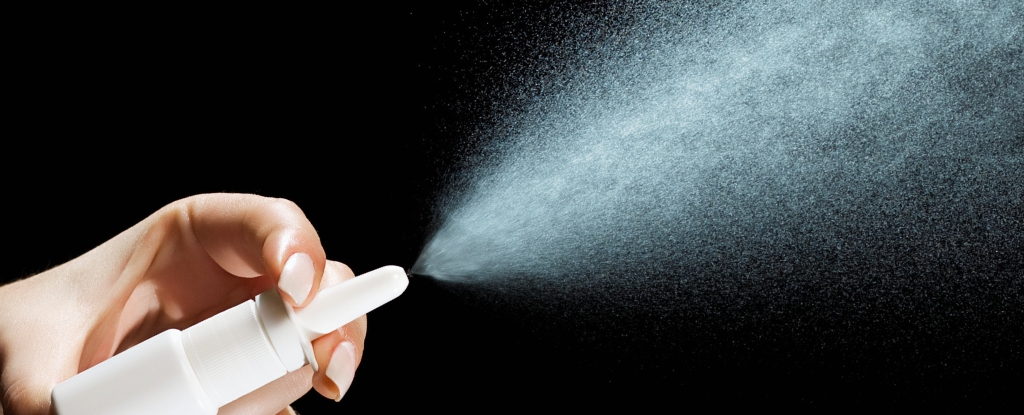Can an Over-The-Counter Nasal Spray Reduce COVID Cases by Two-Thirds?

Published: 2025-09-12 01:39:27 | Category: Uncategorized
Azelastine, a nasal spray already approved for treating allergies, shows promise as a preventive measure against COVID-19 according to recent research. With its effectiveness, affordability, ease of application, and over-the-counter availability, it could serve as a valuable addition to current protective strategies against the virus.
Last updated: 30 October 2023 (BST)
Key Takeaways
- Azelastine is an over-the-counter nasal spray used for allergies.
- A recent trial showed a significant reduction in COVID-19 infections among users.
- The drug may also lower the incidence of other respiratory infections.
- Further research is needed to establish its safety and effectiveness for COVID-19 prevention.
- Azelastine could complement existing protective measures, especially for vulnerable groups.
Understanding Azelastine
Azelastine is an antihistamine that has been available for decades under various brand names. It is primarily used to relieve symptoms of allergic rhinitis, commonly known as hay fever, as well as other allergic conditions. The nasal spray formulation allows for effective delivery directly to the nasal passages, where it can quickly reduce inflammation and irritation caused by allergens.
Recent Research Developments
Research into azelastine's potential as a preventive treatment for COVID-19 was spurred by encouraging laboratory results and anecdotal evidence from patients infected with the SARS-CoV-2 virus. An eight-week trial conducted by a team from Saarland University in Germany examined the efficacy of azelastine in a controlled environment.
Trial Design
The trial involved 450 participants who were randomly assigned to one of two groups. The first group used azelastine nasal spray three times a day, while the second group received a placebo. The results were compelling, showing a marked difference in infection rates between the two groups.
Results of the Trial
According to pneumologist Robert Bals, the findings were significant:
- 2.2% of participants in the azelastine group contracted SARS-CoV-2.
- 6.7% of participants in the placebo group contracted the virus, indicating a threefold increase in infections among those not using azelastine.
Additional positive outcomes included a reduction in symptomatic infections and a lower overall incidence of respiratory infections, including the common cold virus, rhinovirus. This finding is particularly noteworthy, as rhinovirus infections are typically challenging to prevent and treat.
Implications for COVID-19 Prevention
While the COVID-19 pandemic has seen a decrease in infection rates, the virus continues to pose a threat, particularly to high-risk groups and individuals travelling to areas with high transmission rates. Vaccines, while beneficial, are not universally effective. Thus, the introduction of azelastine as a nasal spray could provide an easier and complementary prophylactic measure.
Potential Benefits of Azelastine
Some of the potential benefits of using azelastine as a preventive measure against COVID-19 include:
- Accessibility: Azelastine is available over the counter, making it easily accessible to the public.
- Cost-effective: Compared to other COVID-19 preventive measures, azelastine is likely to be more affordable for many individuals.
- Ease of use: Being a nasal spray, it is simple to administer and requires no special training.
- Existing safety profile: As an approved medication for allergies, azelastine has a long history of safe use.
Next Steps for Research
Despite these promising results, azelastine cannot yet be marketed as a COVID-19 prevention method. Further trials are essential to explore its efficacy in larger and more diverse populations, particularly among those at higher risk. This additional research is crucial for understanding the mechanisms behind azelastine's protective effects against COVID-19 and other respiratory pathogens.
Understanding the Mechanisms
While the recent study did not delve into why azelastine is effective, existing literature suggests several potential mechanisms. As a nasal spray, it targets the entry point for many SARS-CoV-2 infections. Additionally, azelastine has shown the ability to inhibit the replication of the virus, thereby limiting its spread within the body. More research will be needed to fully unravel these mechanisms and confirm the drug's protective capabilities.
Conclusion
The findings surrounding azelastine as a potential preventive treatment for COVID-19 are encouraging. As researchers continue to investigate its efficacy and safety, the drug could serve as an important tool in the public health arsenal, particularly for vulnerable populations and during high transmission periods. The ongoing quest for effective COVID-19 prevention strategies underscores the importance of exploring existing medications in new contexts.
As we await further research results, the potential of azelastine as a preventive measure against COVID-19 may reshape how we approach respiratory infections in the future. Could this nasal spray represent a turning point in our ongoing battle against COVID-19 and similar viruses? #Azelastine #COVID19Prevention #RespiratoryHealth
FAQs
What is azelastine used for?
Azelastine is primarily used to treat allergic conditions, particularly allergic rhinitis or hay fever. It works by blocking histamine, which causes allergy symptoms.
How does azelastine work against COVID-19?
Research suggests that azelastine may prevent SARS-CoV-2 infections by inhibiting the virus's replication and reducing inflammation in the nasal passages, where the virus typically enters the body.
Is azelastine safe for everyone?
Azelastine is generally considered safe for public use; however, individuals with specific allergies or health conditions should consult a healthcare professional before use.
Can azelastine replace COVID-19 vaccines?
No, azelastine is not a replacement for vaccines. It may serve as an additional preventive measure, particularly for those who are unable to receive vaccines or during high transmission periods.
What are the next steps in azelastine research?
Further studies are needed to confirm azelastine's efficacy against COVID-19 in larger and more varied populations, particularly focusing on vulnerable groups.


